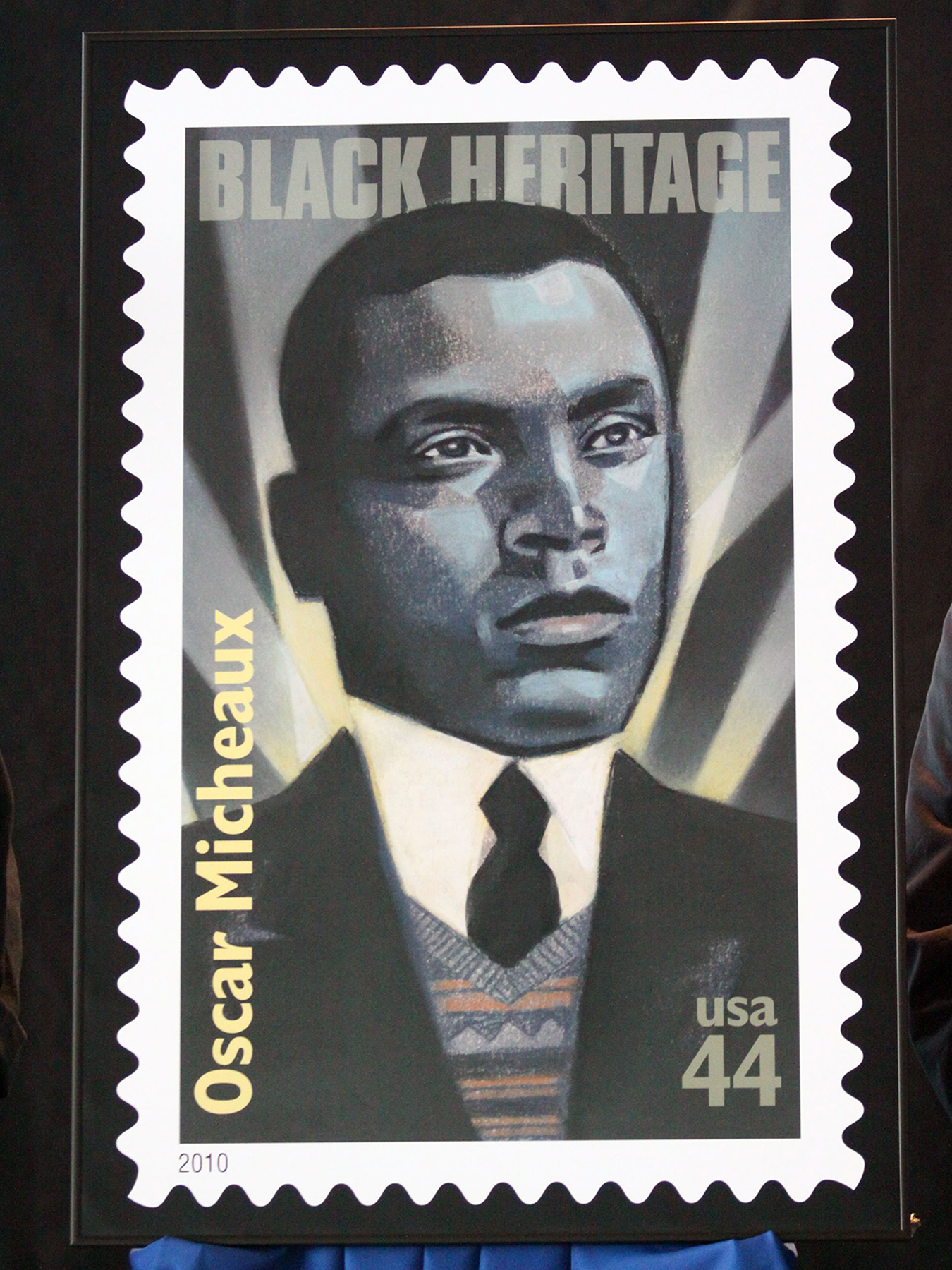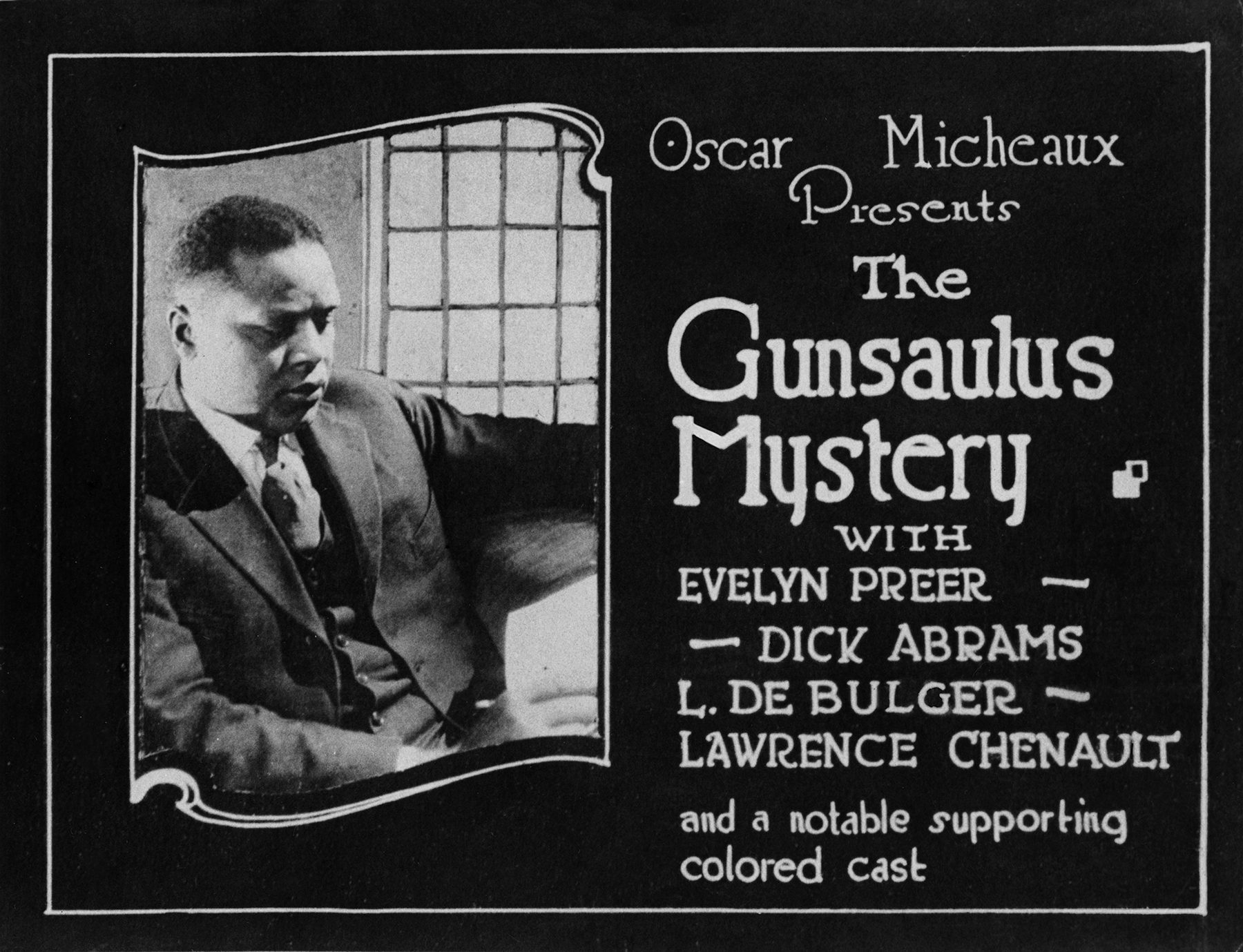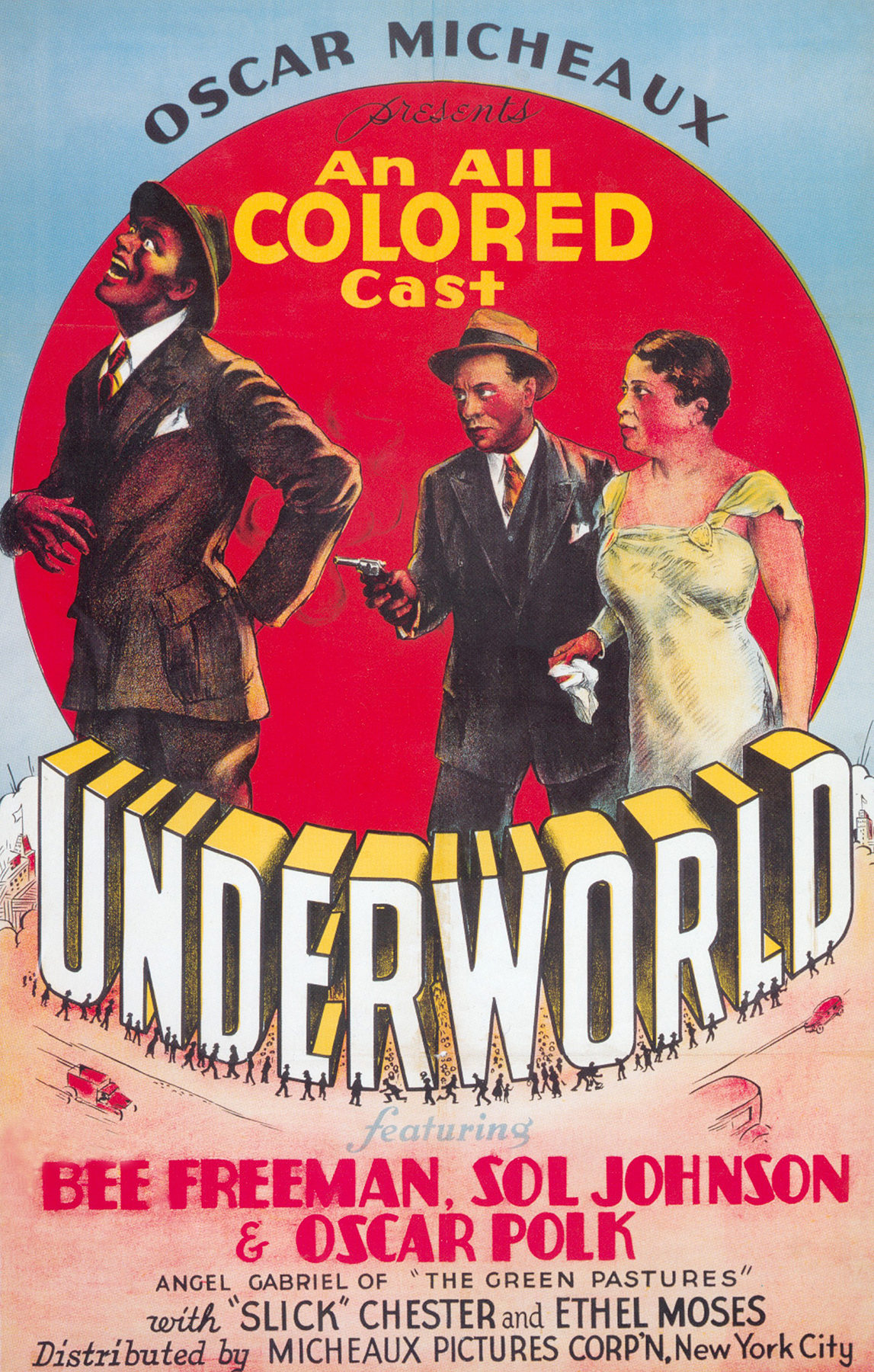
- Industry
Oscar Micheaux: Filmmaker, Entrepreneur, Pioneer
“A man ahead of his time.” These simple words on a tombstone in Grand Bend, Kansas, define Oscar Micheaux. Oscar was born in 1884 in Metropolis, Illinois, the son of slaves, one of thirteen siblings, whose parents moved to the city so that the children could receive better education; he attended a well-respected school for a few years until the family ran into financial problems and had to return to the farm. Unhappy with life on the farm, Oscar became rebellious and was sent back to the city to take a marketing job, where he learned social skills and made friends. When he was 17 years old, he moved to Chicago to live with his older brother and took a job as a waiter, until, growing tired of his brother’s lifestyle, he moved out on his own and found work in the stockyards and later in steel mills. These were difficult jobs, so he decided to open his own business, a shoeshine stand in a wealthy African American barbershop away from the city. He then took a job as a Pullman porter, which paid him well and gave him security. This job brought him in contact with some wealthy white people and gave him the opportunity to travel and gain a better understanding of business.
When he saved enough money, he moved to South Dakota, where he purchased some land and became a homesteader in an area where his neighbors were mostly white. It was here that he took to writing articles and sending them to various papers. After the Chicago Defender published one of his articles, he gained confidence and embarked on writing novels. His first novels were autobiographical records of his life: The Conquest in 1913, The Forged Note in 1915, and The Homesteader in 1917. All the protagonists were young Black men who lived in rural White South Dakota. He published these novels himself and went door-to-door selling them to the neighboring farms.
Having had some success in selling these novels he gave up farming and took to writing six more novels. When D. W. Griffith made his powerful film The Birth of a Nation, it impressed Micheaux even though it was an anti-Black film, because he discovered through it that novels could be turned into films. As it turned out, that is exactly what happened to one of his novels in 1918 when a film company contacted him to obtain the rights to The Homesteader. Micheaux wanted to write the script and be involved in the production, but the producers refused, so he decided to make the film on his own. He contacted the wealthy friends that he had met during his tenure as a porter. With very little money and very little knowledge about filmmaking, he undertook to make the first full-length feature film written, produced, and directed by an African American.
Since his budget was very low, he had to cut a lot of corners. Actors were not allowed to do second takes. If they flubbed their lines, he left them in. If the lighting was poor, there was nothing he could do about it. In spite of all the handicaps, the film became a commercial success and grossed over $5,000. This enabled him to persuade the best Black actors of the time to work on the 44 low-budget films he produced between 1919 and 1948. These films appealed mostly to the growing urban Black audiences, who were so excited to see people on the silver screen who looked like them, that they overlooked all the flaws in his films. His films were mainly detective stories, although on occasion he ventured into more complex subjects. In his fifth film, he tackled the subject of racism which was portrayed in The Birth of a Nation. He examined controversial subjects that affected the Black community, such as skin color, color hypocrisy, inter-racial romance. These topics were his main subjects in the films that he made from the 1920s to the 1930s. These films provided a startling contrast to the way in which Black characters were treated in Hollywood films, where they were mostly portrayed as ignorant, lazy, and sexually aggressive characters.
Although the critics acknowledged that Michaux’s moviemaking was amateurish, the audience that he targeted devoured his films, making him the most prominent African American filmmaker in the United States. His philosophy to success was expressed in his own words, “There is no barrier to success which diligence and perseverance cannot hurdle”. He went on to say, “It is only by presenting those portions of the race in my pictures, in the light and background of their true state, that we can raise our people to greater heights. We want to see our lives dramatized on the screen as we are living it, the same as other people, the world over”.
His words never rang truer than they do today when there is more pressure than ever on Hollywood for diversity. Oscar is a shining example of how one man made an effort to bring his race and his people’s issues to the silver screen, thus giving his audience a feeling that they belonged in American society. Oscar may be gone now, but he’s not forgotten. Micheaux died in 1951 while on a promotional tour of North Carolina, but even today, he continues to receive recognition. He’s in the Black Filmmaker’s Hall of Fame, which gave him a posthumous award. The Director’s Guild of America named him a posthumous recipient of the Golden Jubilee Special Directorial Award in 1986. He was honored with a star on the Hollywood Walk of Fame, and from time to time his memory as the first Black American filmmaker continues to be honored by various other institutions.
A lot of Micheaux’s films have been lost and the ones that still exist are a good reflection of the times he lived in. Many of the challenges he depicted in his films are still faced today among the African American community.

Lobby card from the movie The Gonsaulus Mystery, directed by Oscar Micheaux and starring Lawrence Chenault and Evelyn Preer, 1921.
John Kisch/Getty Images

Underworld, poster, Slick Chester, Sol Johnson, Bee Freeman, 1937 – directed by Oscar Micheaux.
LMPC via Getty Images

